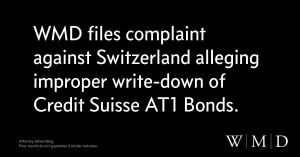Wolfgang Schmidt, the Federal Chancellery Chief and the rising SPD candidate for the Bundestag, is making headlines as he gears up for the elections on February 23.
On February 11, at 19:00, he invites the public to engage with him during a discussion evening alongside renowned journalist Ulrich Wickert at the Logensaal of the Hamburger Kammerspiele, located on Hartungstraße 9-11. This event aims to address pressing political and social issues, providing Schmidt with the opportunity to connect with the electorate and solidify his message as he campaigns for the constituency of Eimsbüttel.
Schmidt, who has been serving as the head of the Chancellery since December 2021 under Chancellor Olaf Scholz, is no stranger to the world of politics. His previous roles have included Undersecretary of the Federal Ministry of Finance, where he represented the interests of Hamburg at the federal and EU levels. Schmidt's experience places him at the forefront of the political conversation as the SPD aims to retain its influence amid growing competition from opposition parties.
The upcoming discussion with Wickert promises to be not just another campaign event but is positioned as a platform for serious debate about the future of Germany. Wickert, with his storied career as the long-time moderator of ARD's "Tagesthemen" and author of various non-fiction works, will engage Schmidt on topics ranging from policy changes to the intricacies of international relations.
On the campaign trail, Schmidt is actively seeking to present himself as more than just Scholz's confidant. He aims to demonstrate his capability to lead and represent the SPD's interests during this pivotal election. Amid stirring discussions surrounding the immigration debate, which has intensified recently, Schmidt has taken to various media platforms to assert the SPD's stance on migration and integration policies.
Recently, the tone of the election campaign has turned increasingly heated, partially fueled by the migration debate ignited due to violent incidents, including the recent knife attack attributed to tensions surrounding asylum policies. Schmidt, expressing frustration with the current political rhetoric, commented, "Das ärgert mich deswegen auch so, dass man mit diesem Sprücheklopfen durchkommt – und alle sagen jetzt auf einmal, dass die CDU die richtigen Vorschläge macht," signaling his concern over the CDU's rising influence on the issue.
This statement reflects the SPD's efforts to combat the narrative surrounding immigration led by the CDU's Friedrich Merz. Schmidt argues there has been substantial tightening of migration policy under the current coalition government, emphasizing the need for digital reforms within bureaucratic systems to prevent future failures.
Schmidt’s efforts to bridge the connection to the electorate through face-to-face conversations, such as the one planned with Wickert, reveal his strategy to localize national issues and address voters' concerns directly. His door-to-door visits, which include reaching out to residents and asking for their support, underline his grassroots approach.
With the election looming, Wolfgang Schmidt's candidacy is both timely and significant. His ability to navigate the complex political landscapes of Germany will be tested as voters head to the polls. Schmidt’s challenge lies not only within the political arena but also within the hearts and minds of the public he seeks to serve.
The conversation on February 11 will undoubtedly be closely observed, serving as just one element of Schmidt's broader campaign strategy aimed at revitalizing trust and commitment to the SPD. This event is free to attend, encouraging openness and dialogue as Schmidt looks to galvanize support.
Schmidt’s campaign reflects broader political currents within Germany as parties position themselves on contested issues like migration, economic recovery, and public welfare. Electorate responses to these discussions will likely shape the future of the German Bundestag.
On February 23, voters will affirm their stance, which may determine not just individual careers but the direction of Germany's policies for years to come. Schmidt stands at the forefront, advocating for meaningful conversations and impactful change within the political framework.



